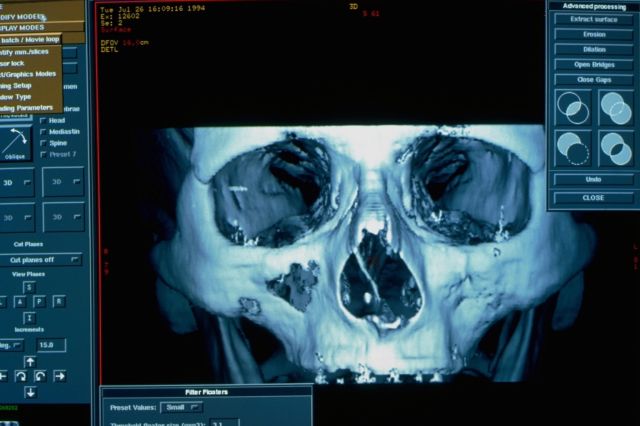Welcome to Introduction to Anatomy and Physiology BIO 160IN, 12785, section 03

Important Information:
Instructor: Holliston L. Riviere, PhD
Office Hours: By arrangement with student
E-Mail: HYPERLINK "mailto:hriviere@pima.edu" hriviere@pima.edu
Voice-mailbox: 206-6464
Course Meeting Time: Fall 2003, Monday and Wednesday 10:30am- 1:10pm
Location: Pima Community College, Northwest Campus Building E room 312
Transferability: transferable
First day of class: August 25, 2003
Last day of class: December 8, 2003
Follow this link for the PCC Web Page
Required Texts: Essentials of Human Anatomy and Physiology , 7th ed., Elaine N. Marieb and Essentials of Human Anatomy and Physiology Laboratory Manual , 2nd ed., Elaine N. Marieb, Available at the NW Campus Bookstore.
Goals and Objectives:
The Student will:
•Have a basic understanding of anatomical terms and levels of structural organization.
•Be familiar with the basic chemical concepts which support life.
•Understand the function of cells and be able to describe and identify selected tissues.
•Know the basic structure and function of the skin, skeletal, muscular, nervous, endocrine, cardiovascular, lymphatic, respiratory, digestive, urinary and reproductive systems.
•Be familiar with the basic structure and function of the special senses.
•Know the composition and functions of blood.
•Use the above concepts and knowledge in problem solving exercises and understand how the information is used and applied in everyday life.
Grading:
•Two lecture exams and a final exam will be given. The exams will be written and consist of a mixture of fill -in -the- blank, matching, multiple choice and short answer questions.
•Five laboratory quizzes worth 20 points each (total = 100 points) will be given. Laboratory quizzes will consist of identification of structures and application of concepts presented in the labs. The concepts developed in the laboratory will also be included in the lecture exams.
•Each written exam will total 100 points. Your course grade will be the average of the three written exam grades and the total points from the laboratory quizzes. For example, if a student scored 75 on the first written exam, 60 on the second exam, 82 on the final exam and earned a total of 72 points on the lab quizzes, his/her average would be 72. Grades for each written exam and the course will be assigned according to the following scale:
Average Points and Grade
90–100=A
75-89=B
60-74=C
50-59=D
below 50=F
•The laboratory review sheets at the back of the lab manual must be turned in following each lab. The review sheets will be returned and you will receive credit for completing the lab. A student who completes all of the labs will have an additional 5 percentage points added to his/her course grade average. In our example above, that would make the students course grade average 77, raising the grade from a C to a B.
•A missed exam or quiz will be made up at the discretion of the instructor. Attendance is required for both the lecture and laboratories.
Daily Schedual:
8/25-Introduction. Reading pp. 1-9, Lab 1
8/27-Homeostasis. Reading pp. 9-16, Lab 2
9/1-no class- Labor Day
9/3-Basic Biochemistry. Reading pp.21-48
9/8-Cells and Tissues. Reading pp.56-75, Lab 3
9/10-Cells and Tissues continued. Reading pp.77-85, Lab 5
9/15-Skin and Body Membranes. Reading pp.95-111, Lab quiz #1, 6
9/17-Skeletal System. Reading pp.116-124, Lab 7
9/22-Axial Skeleton. Reading pp.124-138, Lab 8
9/24-Appendicular Skeleton. Reading pp.138-145, Lab 9
9/29-Joints. Reading pp.145-154, Lab 10
10/1-Exam #1, quiz #2
10/6-Muscular System. Reading pp.162-175, Lab 11 and 12
10/8-Muscular System. Reading pp.175-194, Lab 12
10/13-Nervous System. Reading pp.203-215 and pp.226-229, Lab 13
10/15-Nervous System. Reading pp.215-226, Lab 14
10/20-Nervous System. Reading pp.229-244, Lab 15
10/22-Special Senses. Reading pp. 252-274, Lab 17
10/27-Endocrine System. Reading pp.279-301, Lab quiz #3, 18
10/29-Blood. Reading pp.308-321, Slides
11/3- Cardiovascular System: Heart. Reading pp.328-339, Lab 20
11/5-Exam #2, quiz #4
11/10-Cardiovascular System:Blood Vessels. Reading pp.341-360, Lab 21 and 22
11/12-Lymphatic System. Reading pp.368-377, Lab 21 and 22 continued
11/17-Lymphatic System. Reading pp.377-396, Slides
11/19-Respiratory System. Reading pp.404-426, Lab 23
11/24-Digestive System part 1. Reading pp.432-455, Lab 25
11/26-Digestive System part 2. Reading pp.456-46, Lab 25 continued
12/1-Urinary System. Reading pp.480-498, Lab 26
12/3-Male reproductive System. Reading pp.504-511, Lab 27
12/8-Female Reproductive System. Reading pp.511-532, Lab 27 continued
Final Exam and Lab Quiz date to be announced
Drop/Refund deadline- 9/8
Withdrawal deadline- 11/12
Pima Community College is an equal opportunity, affirmative action employer and educational institution committed to excellence through diversity. Reasonable accommodations, including materials in an alternative format, will be made for individuals with disabilities when a minimum of five working days advance notice is given. For the general public, please contact the PCC information line at 206-4500 (TTY 206-4530); for PCC students, contact the Northwest Campus Disabled Student Resources Office at(520) 206-2209 (TTY 206-2270).